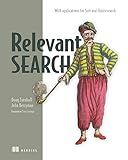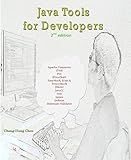Best Solr Search Tools to Buy in February 2026
To search a phrase in Solr, you can enclose the phrase within double quotes. This tells Solr to treat the words within the quotes as a single entity, rather than searching for each word individually. Additionally, you can use the 'q' parameter in your Solr query to specify the phrase you want to search for. For example, if you want to search for the phrase "data science" in a field called "content", your query would look something like this: q=content:"data science". By using quotes and the appropriate query parameters, you can easily search for specific phrases in Solr.
How to search for an exact phrase in Solr?
To search for an exact phrase in Solr, you can use quotation marks around the phrase in your query. This tells Solr to search for the exact phrase as it is typed, rather than individual words.
For example, if you want to search for the phrase "data analysis" in Solr, you would use the following query:
q="data analysis"
This will return documents that contain the exact phrase "data analysis" in the text. Note that the default operator in Solr is "OR", so if you want to search for an exact phrase, make sure to use quotation marks to specify that.
What is the impact of field boosting on phrase search relevance in Solr?
Field boosting in Solr impacts the relevance of phrase search by giving more weight to certain fields while searching for a specific phrase. By boosting certain fields, Solr can prioritize and give more importance to those fields when matching a phrase query. This can result in more relevant search results, as the fields with higher boosts are considered more important in determining the relevance of a document.
For example, if a query is searching for a specific phrase in the title field and the title field has a higher boost compared to other fields, documents with the exact phrase match in the title field will be ranked higher in the search results.
Overall, field boosting can significantly improve the relevance of phrase search results in Solr by allowing users to customize and prioritize certain fields based on their importance for specific queries.
What is the recommended approach for handling phrase searches in Solr?
The recommended approach for handling phrase searches in Solr is to use the "Phrase Query" feature. This feature allows users to search for an exact sequence of words within a document, including the specific order of the words.
To perform a phrase search in Solr, users simply need to enclose the search terms within double quotation marks. For example, a search for "apple pie recipe" would return documents that contain the exact phrase "apple pie recipe" in that order.
Additionally, users can also customize the behavior of phrase searches in Solr by adjusting the phrase slop parameter. This parameter specifies the maximum number of words allowed between the terms in the phrase. By adjusting the slop parameter, users can control how closely the search results match the exact phrase.
Overall, utilizing the "Phrase Query" feature in Solr is the recommended approach for handling phrase searches, as it allows for precise and accurate search results based on the exact order of words within a document.
What is the impact of using stop words in phrase searches in Solr?
Using stop words in phrase searches in Solr can have both positive and negative impacts.
Positive impacts:
- Improved search results: Stop words such as "and", "or", "but" are common words that do not carry much meaning, and removing them from the search query can help improve the relevance of search results by focusing on the important keywords.
- Faster indexing and searching: Stop words are typically removed during the indexing process, which can help reduce the size of the search index and improve the speed of searching.
Negative impacts:
- Misinterpretation of phrases: Removing stop words from a phrase search query can potentially change the meaning of the query and lead to incorrect search results. For example, searching for "to be or not to be" without stop words would simply become "be", which is not the intended search query.
- Limited flexibility: By automatically removing stop words from search queries, users may not be able to use common language constructs or phrases that contain stop words in their search queries.
Overall, the impact of using stop words in phrase searches in Solr depends on the specific use case and requirements of the search application. It is important to carefully consider the implications of using stop words and test the search functionality to ensure the best results for users.
What is the role of relevancy factors in determining the quality of phrase search results in Solr?
Relevancy factors play a crucial role in determining the quality of phrase search results in Solr.
- Keyword Matching: Solr uses keyword matching to determine the relevancy of a document to a particular search query. The more closely a document matches the keywords in the query, the higher its relevancy score will be.
- Term Frequency and Inverse Document Frequency (TF-IDF): Solr considers the frequency of terms in a document and how rare those terms are across all documents in the index. Terms that appear more frequently in a document but are rare overall will have a higher weight in determining relevancy.
- Field Boosts: Solr allows users to assign different weights to fields in the index based on their importance. For example, a title field may be given a higher boost than a content field, meaning that documents with matching terms in the title will be considered more relevant.
- Phrase Matching: Solr can also take into account the order of terms in a query when determining relevancy. For example, if a query includes a phrase like "machine learning", Solr will give higher relevancy scores to documents that have the exact phrase in the same order.
Overall, relevancy factors in Solr help to ensure that the search results returned are more accurate and useful to users, improving the overall quality of the search experience.
How to specify a phrase search in Solr queries?
To specify a phrase search in Solr queries, you can use quotation marks around the phrase you want to search for.
For example, if you want to search for the phrase "hello world" in a Solr query, you would enter it as:
"hello world"
This tells Solr to search for the exact phrase "hello world" in the indexed documents, rather than individual words. This can be useful when you want to find instances of a specific phrase within your search results.




